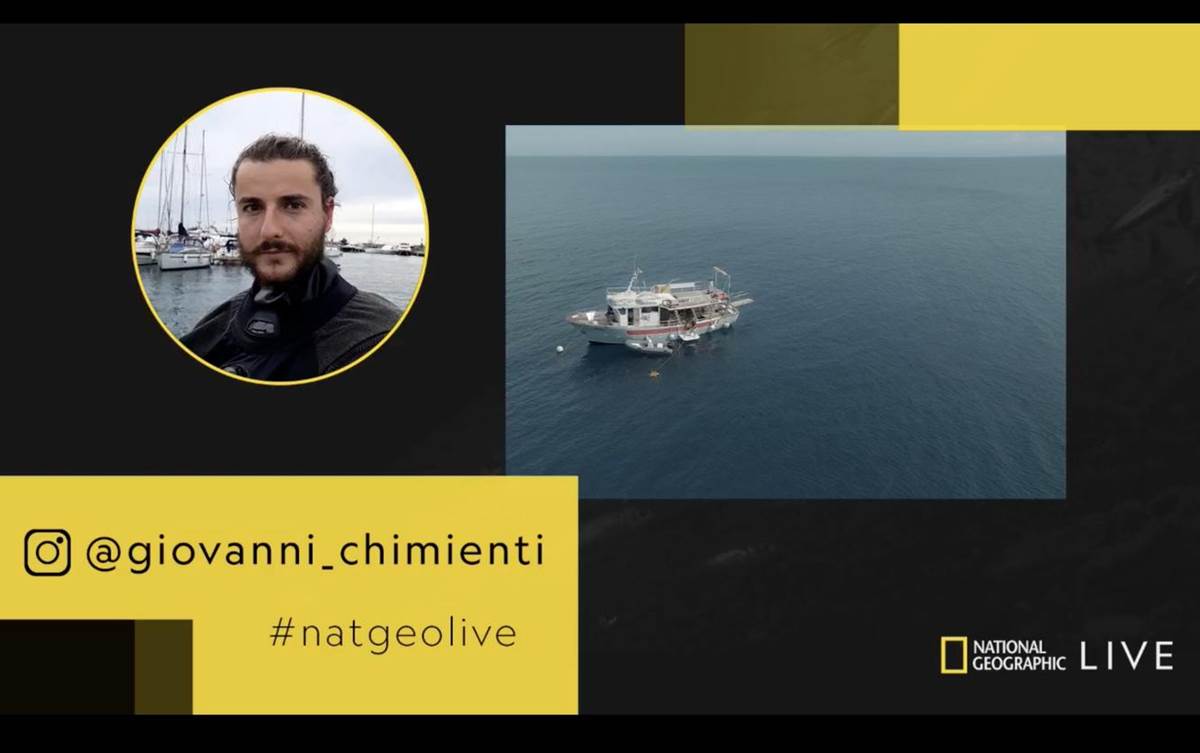Nat Geo Live Event Recap: Marine Biologist Giovanni Chimiente Shares the Importance of Black Corals
On January 28th and February 11th, National Geographic Live hosted two conversations and Q&A’s on their facebook page with Marine Biologist, Zoologist and National Geographic Explorer Dr. Giovanni Chimiente. The main focus of his research has been on corals, primarily those of the mediterranean sea near his home in Italy. Like most Nat Geo Live events, the fun began by getting to know this explorer.
Giovanni didn’t grow up near the ocean but on a farm where his love of animals began. He actually didn’t learn how to swim until he was a teenager, but National Geographic magazine and TV documentaries gave him his first exposure to the ocean and the mysterious life it houses. He became a part of National Geographic Society in 2018.
The primary focus of his research has been on black corals, which he featured in a documentary that was produced for National Geographic Italia. This species of coral fascinated the ancient Greeks for its color changing properties. Black coral looks white when it's alive, but becomes a shiny black color when dead. It became a popular part of jewelry, replacing stones or jewels, and like fools gold, there’s “False black coral,” which is caused by a parasite in other types of coral. But the conversation primarily focused on why this is a terrible thing for the species.
Corals may look like plants and black corals even show rings in their cut branches that can tell scientists how old they are like a tree, but they’re actually animals. In the second event. Giovanni held up a black coral branch that was submitted for research by a fisherman who accidentally pulled one up. Scientists intentionally don’t collect live coral samples because these animals can live for thousands of years and as he explained, the principles of coral reproduction are still a great mystery.
While corals don’t have a brain, they somehow communicate with other corals nearby. Scientists don’t know exactly how it happens, but they believe they use chemical signals to tell one another when it’s time to breed. The phenomenon only happens once per year and it’s not necessarily an annual event. They release their reproductive product into the water and if a miracle occurs, new corals are born. It’s a very delicate process and one that is impaired by increased climate change.
Giovanni made a big discovery when he found the largest black coral forest ever discovered, which is in the trinity archipelago where scientists weren’t expecting to find black coral. It’s an area of the seabed that had never been explored before and as wonderful as the discovery was, it also revealed that due to warming waters, this deep sea coral forest is actually dying. It’s easier to see this in action with shallower coral reefs turning white, but these coral forests 60 meters below the surface aren’t as visible.
The loss of corals means less oxygen for the planet, but many species also rely on coral forests to allow them to thrive. Like forests on land, coral forests act like shelters with 2 meter high corals creating a habitat of shelter for fish, mollusks and crustaceans. There’s a species of shark that rely exclusively on black corals to breed, laying their eggs on black coral branches. Losing this black coral forest to rising ocean temperatures would have lasting ripple effects for the entire planet and because their reproductive habits take so long and they live for thousands of years, it would take a very long time to ever be able to rebound from the loss of these areas.
To the climate change deniers, Giovanni says it’s not a matter of if you believe in it or not because it’s a fact. The real question if not whether or not you believe in it, but if you understand it. He shared some small actions that individuals can do that can have a big impact, including reducing your use of fossil fuels (driving and flying less), reducing your meat consumption, and properly disposing of plastics. He continually talked about how much plastic he sees on the seafloor, showing a video of spider crab who would typically grab sea sponges or dead pieces of coral to hide under from predators, but who was using a big sheet of plastic instead.
Moderated by Dominique Hogue, this two-part conversation with National Geographic Explorer Giovanni Chimiente was a fascinating look at a specific species of coral that needs our attention and help. The ancient Greeks recognized it for its beauty, but we now need to recognize it for the essential role it plays not just in the oceans, but for the planet. You can see both parts of this conversation below.
Part 1
Part 2
National Geographic Live events are a great way to widen your worldview, learn about important topics, and gain new perspectives. Most of them are available at no cost and you don’t even need to be a National Geographic Magazine subscriber to participate. Click here to see the calendar for all future live events.



